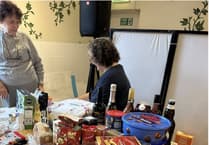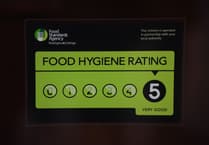Bath and North East Somerset residents are being urged to give bees the gift of flowers this Valentine’s Day as part of the Metro Mayor Dan Norris’s efforts to help the West’s pollinator superheroes.
Mayor Norris has curated a list of five simple steps to help bees, whose pollinating services are worth around £690 million a year in boosting yields and the quality of fruit and veg.
People can take these super-easy measures like getting green-fingered by planting more flowers that are rich in nectar and pollen, eating local honey and ditching bee-harming pesticides for good.
Schoolchildren are being given a February half term challenge to build “bee hotels” out of simple items like plastic drinks bottles and string - to give our pollinator pals a home in our area and across the West.
Metro Mayor Dan Norris, who has pledged to make the West of England the Bee and Pollinator Capital of the whole country, said: “Bees are bee-rilliant. From blueberries and strawberries to broccoli and squash, it’s thanks to these busy creatures that we have a plentiful supply of all our favourite fruit and veg. But bees haven’t been feeling the love of late thanks to the loss of their habitats, the use of nasty bee-harming pesticides and the climate crisis we all face. The good news is there are some super simple things you can do to help out our little buds on the most romantic day of the year and beyond.”
Chief Executive of Avon Wildlife Trust, Ian Barrett, says:
“It is unacceptable that these toxic pesticides are being permitted at a time when populations of our precious pollinators are already in freefall. By authorising the use of a banned neonicotinoid, one of the world’s most environmentally damaging pesticides, the Government is defying the advice from its own Expert Committee on Pesticides - for a third year in a row.”
“Bees and other insects play vital roles in pollination. They also form the base of the food chain for many birds and other species that are in steep decline. Now more than ever, we need to support bees and insects by protecting and restoring their habitats.
“Local people can make a real difference for wildlife of all shapes and sizes, by gardening without pesticides, planting more native wildflowers and creating bee hotels and other places of shelter in their gardens and local green spaces. We’re asking everyone to join our Team Wilder community and help to bring wildlife back to Avon, by taking action for wildlife and sharing resources, experiences and inspiration. Be part of Team Wilder and make a difference: www.avonwildlifetrust.org.uk/team-wilder”.




.jpeg?width=209&height=140&crop=209:145,smart&quality=75)
Comments
This article has no comments yet. Be the first to leave a comment.